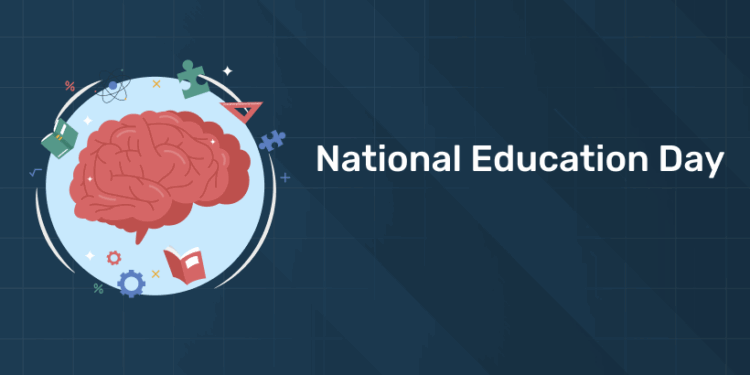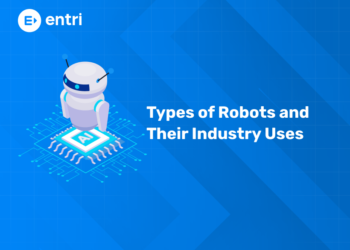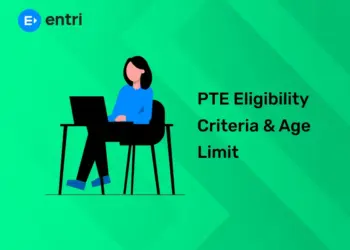Table of Contents
Education is one of the fundamental human rights for every citizen that is bestowed to all citizens by our own Constitution. The Right to Education entitles every citizen of India to receive formal training from a world-class educational institution from a younger age. Without knowledge, the society we live in cannot progress and develop. Countries that have high rates of literates and educated citizens commonly have higher rates of progress and development.
National Educational Day in India has celebrated India every year on November 11. This day is celebrated as a national education day from the year 2008 in memory of Maulana Azad. From that year celebrations are held in the country on that day under the Central Ministry. Here are all the details that you need to know about National Education Day 2025.
National Education Day 2025 Date – November 11
In this article readers can get a glimpse on
- History and Significance of National Education Day
- National Education Day Theme 2025
- National Education Day Quiz
National Education Day
1: Who was the first woman President of India?
National Education Day is celebrated on November 11 of each year. National Education Day falls on a Saturday this year. The first education minister of independent India, Maulana Abdul Kalam Azad, was born on August 15, 1947, and served as such until February 2, 1958. This day is designated as National Education Day.
On September 11, 2008, the Ministry of Human Resource Development made the following announcement: “The Ministry has decided to commemorate this great son of India’s birthday by remembering his contribution to the cause of education in India.” Commencing in 2008, November 11 will be observed annually as National Education Day, with a holiday designation.” Every educational institution in the nation celebrates the day with lectures, symposiums, writing contests, elocution contests, workshops, and demonstrations featuring placards and catchphrases emphasizing the value of literacy and the commitment of the country to all facets of education. The day is also considered as an opportunity to honor Azad for his role in establishing the framework for India’s education system after independence as well as assessing and enhancing the nation’s current standing in this field.
Free UPSKILLING Courses!
Take your first step toward mastering in-demand skills, acing interviews, and securing top-tier jobs with Entri's free upskilling courses.
Start Learning!National Education Day History
Maulana Azad is one of the most important and prominent figures in the Indian freedom struggle history. He also played a vital role in establishing a well-structured educational policy and institutions across the country. Maulana Azad had high hopes and great vision about the educational system and is the visionary behind the establishment of the University Grants Commission, which is the premier institution in India for graduation studies that provides various educational programs and courses through different study modes.
Maulana Azad was considered a visionary with great ideas and visions for the educational sector of India and was convinced to take the office of Educational minister by Jawaharlal Nehru. He was selected for that role by C. Rajagopalachari and held the title in 1958 until he passed away. During his tenure, he established many institutions of importance like UGC, AICTE [ All India Council for Technical Education], Institute of Higher Education [Kharagpur], University Education Commission, Secondary Education Commission, Jamia Millia Islamia, and IIT Kharagpur.
National Education Day: Significance, Importance
As education is one of the basic fundamental rights entitled for every citizen of India, it is very important to have a literate and educated population for the development and progress of society. Education is one of the primary needs of a person that opens doors to a world of knowledge and opportunities. The government has taken enormous steps to improve the literacy scene in our country through various educational schemes, programs and by establishing institutions providing high-quality education to the masses. The literacy rates in the post-independence era and current figures show a remarkable and drastic improvement. People have realized the importance of education in every person’s life and how it helps in personal growth as well as the growth of society.
National Education Day Theme 2025
The theme “AI and education: Preserving human agency in a world of automation” is a critical global call to action, highlighting the duality of Artificial Intelligence (AI)—its potential to revolutionize learning and its risk of eroding essential human qualities.
Human agency is defined as an individual’s capacity to think, choose, and act with purpose and self-determination. The theme challenges educators and policymakers to integrate AI responsibly, ensuring it serves as a powerful tool that augments human capabilities, rather than an autonomous agent that replaces them.
Core Concerns in the Age of Automation
The rapid deployment of generative AI (like large language models) in schools and universities raises fundamental questions about the purpose of education:
- Erosion of Core Skills: Over-reliance on AI for tasks like writing, calculation, or analysis can weaken the development of critical thinking, creativity, and problem-solving—skills fundamental to human innovation.
- Ethical and Bias Risks: AI systems, trained on existing data, can perpetuate societal and cultural biases if not carefully monitored and governed. Education is essential in training individuals to recognize and challenge these algorithmic prejudices.
- Data Privacy and Autonomy: The use of AI in education requires vast amounts of student data for personalization, raising significant concerns about data privacy, surveillance, and the ultimate control over a student’s educational trajectory.
- Diminished Teacher Agency: If AI-driven platforms dictate curriculum, assessment, and instruction, the professional autonomy and judgment of teachers (their agency) can be reduced, turning them into mere facilitators of a machine-driven process.
Key Strategies for Preserving Human Agency in Education
- Cultivate AI Literacy and Critical Use:
- Equip all learners (students and teachers) with the foundational knowledge of how AI systems work (their inputs, algorithms, and outputs).
- Develop the critical thinking skills necessary to evaluate AI-generated content, recognize potential biases, and understand the ethical implications of its use.
- Shift the educational focus from simply using AI tools to understanding and challenging them.
- Prioritize Unique Human Skills and Competencies:
- Re-emphasize the teaching and assessment of skills that AI cannot easily replicate, such as creativity, original research, complex problem-solving, emotional intelligence, and empathy.
- Design learning experiences around open-ended, interdisciplinary projects that require human collaboration, negotiation, and ethical decision-making.
- Strengthen Teacher Autonomy and Professional Judgment:
- Use AI tools primarily to automate administrative tasks (e.g., grading simple quizzes, scheduling, data analysis), thereby freeing up teacher time for personalized human interaction and complex pedagogical work.
- Ensure teachers retain the final authority over curriculum design, assessment strategy, and critical student feedback, preventing AI from becoming the sole arbiter of learning.
- Establish Robust Ethical and Governance Frameworks:
- Implement clear national and institutional policies to govern the ethical deployment of AI in classrooms.
- Ensure AI tools are transparent, inclusive, and equitable, avoiding the perpetuation or exacerbation of existing digital or socio-economic divides.
- Safeguard student data privacy and autonomy, giving students and parents control over how personal learning data is collected and used by algorithmic systems.
- Foster a Culture of Lifelong Learning and Adaptability:
- Recognize that automation will continuously transform the job market, making adaptability and continuous skill acquisition paramount.
- Integrate strategies for reskilling and upskilling across the entire education spectrum, preparing students to be agile and responsive to technological shifts throughout their careers.
Free UPSKILLING Courses!
Take your first step toward mastering in-demand skills, acing interviews, and securing top-tier jobs with Entri's free upskilling courses.
Start Learning!National Education Day Previous Themes
National Education Day is observed annually in India on November 11th. This day commemorates the birth anniversary of Maulana Abul Kalam Azad, the first Education Minister of independent India (serving from 1947 to 1958) and a visionary who laid the foundation for the modern education system in the country.
Because the day is a national observance honoring a foundational figure and the country’s commitment to education, it often focuses on broad national educational goals and reforms rather than a distinct, unique theme every single year.
However, the focus themes that have been highlighted in recent years generally align with the National Education Policy (NEP) 2020 and its objectives:
National Education Day Themes and Focus Areas (2014–2024)
- 2024: Building a Brighter Tomorrow Through Education
- Alternative Slogans: “Transforming India through Education” or “Inclusive Quality Education.”
- Focus: Promoting the goals of the NEP 2020, which aim to make education more holistic, inclusive, and flexible, fostering both academic excellence and critical thinking.
- 2023: Education Provided from the Heart May Revolutionize Society
- Focus: A tribute to Maulana Azad’s philosophy, emphasizing the emotional, ethical, and spiritual aspects of teaching alongside academic learning for societal transformation.
- 2022: Empowering the Youth Through Education
- Focus: Highlighting the crucial role of education and skill development initiatives (like PM SHRI and Skill India) in preparing the large youth demographic for 21st-century careers and national progress.
- 2021: Education for Sustainable Development
- Focus: Linking educational outcomes to the global Sustainable Development Goals (SDGs), particularly SDG 4 (Quality Education), and promoting environmentally conscious learning.
- 2020: (Focus on NEP 2020)
- Focus: The primary message was celebrating the Union Cabinet’s approval of the National Education Policy (NEP) 2020 and discussing its potential to reform the Indian education system.
- 2019: Promoting Literacy and Awareness: Education as a Fundamental Right
- Focus: Reinforcing the principles of the Right to Education (RTE) Act and emphasizing equal access to quality education, particularly in underserved regions.
- 2018: Promoting Quality Education and Accessibility
- Focus: A broad theme emphasizing the need to improve the quality of instruction, teacher training, and technological integration across all educational levels.
- 2017: Reflection and Action: Addressing Challenges in the Indian Education Sector
- Focus: Encouraging discussions and seminars to assess the progress made and address persistent challenges like dropout rates and infrastructure gaps.
- 2016: Honoring Maulana Azad’s Legacy and Vision
- Focus: The message centered on remembering Azad’s contribution in establishing institutions like the UGC and the IITs and promoting scientific education.
- 2015: (Focus on India’s commitment to SDG 4)
- Focus: Aligning with the UN’s adoption of the 2030 Agenda for Sustainable Development (SDGs), the focus was on India’s commitment to “ensure inclusive and equitable quality education” (SDG 4).
- 2014: Family Farming: Feeding the world, caring for the earth
- Focus: A general message emphasizing the foundation of education and literacy for all sections of society, including those engaged in traditional occupations like agriculture. (The theme was sometimes conflated with other days.)
National Education Day Quotes
- “Education is the most powerful weapon which you can use to change the world.” – Nelson Mandela
- “The function of education is to teach one to think intensively and to think critically. Intelligence plus character – that is the goal of true education.” – Martin Luther King Jr.
- “The educated differ from the uneducated as much as the living differ from the dead.” – Aristotle
- “Education is the key to success in life, and teachers make a lasting impact on the lives of their students.” – Solomon Ortiz
- “An investment in knowledge pays the best interest.” – Benjamin Franklin
- “Education is the foundation upon which we build our future.” – Christine Gregoire
- “Education is the passport to the future, for tomorrow belongs to those who prepare for it today.” – Malcolm X
- “Education is not the filling of a pail, but the lighting of a fire.” – William Butler Yeats
- “Education is the movement from darkness to light.” – Allan Bloom
- “Live as if you will die tomorrow. Learn like you will live forever.” – Mahatma Gandhi
- “Education is not just a ladder of opportunity, but it is also an investment in our future.” – Ed Markey
- “The best way to predict your future is to create it.” – Abraham Lincoln
- “Education is not preparation for life; education is life itself.” – John Dewey
- “Learning is a treasure that will follow its owner everywhere.” – Chinese Proverb
- “The beautiful thing about learning is that no one can take it away from you.” – B.B. King
- “Education breeds confidence. Confidence breeds hope. Hope breeds peace.” – Confucius
National Education Day Quiz 2025
A) Maulana Abul Kalam Azad
B) Dr. S. Radhakrishnan
C) Mahatma Gandhi
3. In which year was National Education Day first celebrated?
A) 2005
B) 2008
C) 2010
A) Maulana Abul Kalam Azad
B) Dr. Rajendra Prasad
C) Dr. B.R. Ambedkar
5. Which major institution was established under Maulana Azad’s leadership?
A) Indian Institutes of Technology (IITs)
B) Indian Institute of Management (IIMs)
C) All India Institute of Medical Sciences (AIIMS)
A) To promote sports in schools
B) To highlight the importance of education
C) To honor scientists
A) 1888
B) 1898
C) 1908
A) Jamia Millia Islamia
B) Banaras Hindu University
C) Delhi University
A) Article 14
B) Article 21A
C) Article 19
Want More Engaging Questions?
Download our FREE PDF packed with insightful quiz questions to test your knowledge!
🔽 Click below to get your free copy now! 🔽
National Education Day Quiz 2025 PDF
National Education Day serves as a reminder of India’s commitment to spreading knowledge and literacy for all. It honors Maulana Abul Kalam Azad’s vision of education as a force for equality and national progress. His efforts laid the groundwork for institutions and policies that continue to shape India’s educational journey today. The day inspires citizens to uphold the values of curiosity, inclusivity, and continuous learning.
In a rapidly changing world, National Education Day also emphasizes the need to adapt education to modern challenges. It encourages innovation, technology-driven learning, and equal opportunities for every learner. Celebrating this day ensures that education remains not just a right but a shared responsibility. It continues to guide India toward a more informed, skilled, and empowered future.
Free UPSKILLING Courses!
Take your first step toward mastering in-demand skills, acing interviews, and securing top-tier jobs with Entri's free upskilling courses.
Start Learning!Frequently Asked Questions
What is National Education Day and why is it celebrated?
National Education Day is celebrated every year on November 11 in India. It marks the birth anniversary of Maulana Abul Kalam Azad, India’s first Education Minister. The day recognizes his immense contribution to shaping the nation’s education system. It aims to spread awareness about the importance of education for national development. Schools and institutions organize seminars, essay competitions, and rallies to promote this message.
Who was Maulana Abul Kalam Azad?
Maulana Abul Kalam Azad was a prominent freedom fighter, scholar, and India’s first Education Minister. He played a vital role in promoting education and national unity after independence. He was one of the key architects behind the establishment of IITs and the University Grants Commission (UGC). Azad strongly believed that education was essential for social and economic progress. His vision laid the foundation for modern India’s education system.
When did India start observing National Education Day?
National Education Day was first observed in 2008. The Ministry of Education (then the Ministry of Human Resource Development) declared November 11 as the day of observance. The decision was made to honor Maulana Azad’s legacy in shaping India’s educational framework. Since then, schools and universities across India celebrate it annually with various educational activities. It reminds citizens of the value of education in building a strong nation.
What are some key contributions of Maulana Abul Kalam Azad to Indian education?
Maulana Azad laid the groundwork for India’s modern education system. He played a crucial role in setting up institutions like IITs, UGC, and Jamia Millia Islamia. He promoted free and compulsory primary education for all children. Azad emphasized technical education and scientific research to build a self-reliant nation. His contributions continue to influence educational policies even today.
What is the significance of National Education Day in today’s context?
National Education Day reminds us of the transformative power of education. It highlights the need for accessible, quality learning opportunities for every child. In today’s digital age, it also encourages the integration of technology in education. The day inspires policymakers, teachers, and students to uphold educational values. It reinforces that education remains the foundation of progress and equality.
How is National Education Day celebrated in schools and colleges?
Schools and colleges organize seminars, debates, and essay writing competitions. Students present speeches on Maulana Azad’s life and contributions. Educational institutions also conduct exhibitions on the evolution of India’s education system. Many schools use the occasion to honor teachers and promote reading habits among students. The celebrations emphasize the importance of lifelong learning and knowledge sharing.
What is the role of the Right to Education (RTE) Act in supporting this day’s vision?
The Right to Education Act, implemented in 2009, aligns with Maulana Azad’s vision of universal education. It ensures free and compulsory education for children aged 6 to 14. The Act emphasizes inclusivity, aiming to reduce educational disparities. It promotes equal opportunities regardless of social or economic background. This law represents a major step toward realizing Azad’s dream of an educated India.
How did Maulana Azad view the link between education and national development?
Maulana Azad believed that education was the foundation of a strong and progressive nation. He saw it as a tool to eliminate poverty, ignorance, and inequality. His policies aimed at building skilled and enlightened citizens. Azad encouraged the pursuit of science, technology, and culture to foster national unity. His vision continues to guide India’s education policies and reforms.
What message does National Education Day convey to students?
National Education Day encourages students to value learning and personal growth. It teaches that education is not just about academics but about character building. The day inspires youth to use knowledge to contribute positively to society. It reminds students that education empowers them to face life’s challenges. Ultimately, it motivates them to carry forward Maulana Azad’s vision of an educated India.
How does National Education Day relate to India’s current education policies?
National Education Day aligns with India’s ongoing educational reforms like the National Education Policy (NEP). Both aim to make education more inclusive, skill-oriented, and globally relevant. The NEP emphasizes holistic learning, much like Azad’s educational ideals. The observance of this day keeps his vision alive in policy discussions. It encourages continued efforts to build a knowledge-based, equitable society.












